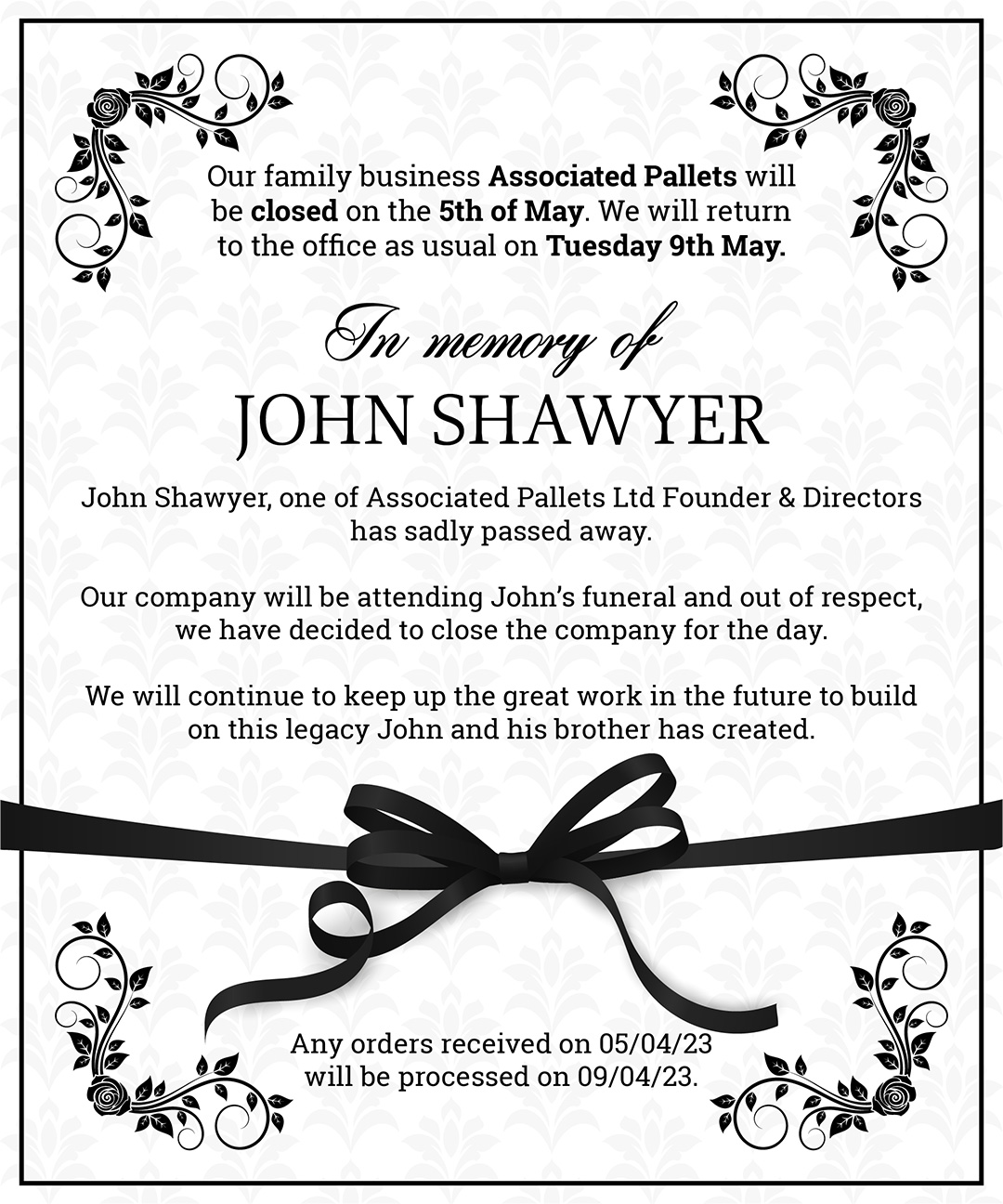Fake EPAL Pallets Investigated by Brepal
05 Oct 2014
The European Pallet Association’s success in introducing a standardised pallet, the Euro pallet or EPAL pallet, has triggered the inevitable consequence of a string of counterfeits appearing, many of them from Eastern Europe. Now Brepal, the UK’s and Northern Ireland’s national committee for EPAL, has launched an investigation in Britain to find the fakes. Brepal is also warning all British pallet users to look out for the counterfeits.
Standard EPAL Dimensions
The standard EPAL pallet dimensions are 800mm x 1200mm. The pallet has a maximum payload of 1,000 kg for a good-quality pallet and an empty weight of 25kg. These pallets are always marked as Euro pallets using abbreviations such as “EPAL”, “EUR” or “DB” with a circle or ellipse around them.
Fake Abbreviations
One of the most common fake abbreviations is a EUR sign without a circle around it. These are known as Ewpallets, and also called one-way pallets. It is quite easy to recognise a fake pallet. Firstly, the wooden planks used in its construction are usually only half the thickness of the EPAL pallet, i.e. 1cm instead of 2cm. A recent inspection by Bureau Veritas, EPAL’s contracted inspection company, also found that the timber used for the fake pallets showed extensive wane signs. Any such recognised Ewpallets are sidelined immediately and cannot be exchanged in any EPAL pallet pool.
Some of the inferior pallets carried the trade signs of a legitimate Polish pallet producer. But a Bureau Veritas investigation in that country found no problems at the company’s production facilities and concluded that the faulty pallets were fakes.
Polish Companies Investigated
However, the worldwide railway co-operation organisation, the International Union of Railways (UIC in its French initialism), has acted on low-quality pallets produced by its Polish member, the state-owned Polish Railways (PKP). Pallets produced by PKP were considered to be of low quality, even though they were marked with the correct EPAL logo as well as PKP’s trade sign. The UIC withdrew the right for PKP to mark EPAL pallets with its trade sign. These will be withdrawn from circulation by EPAL and destroyed.
Pallet Pool
The European Union countries that participate in the EPAL pallet pool are Belgium, the Netherlands, Luxembourg, Germany, Austria and non-EU member Switzerland. There is no exchange system with all countries outside of this pool, even if they do ship goods on EPAL pallets.
Vigilance Necessary
It is important to maintain vigilance about possible fake EPAL pallets. Not only can these faulty pallets break and disrupt the supply chain of goods and services nationally and internationally, but they can also cause serious damage to the reputation of any business connected with that supply chain, as well as serious financial losses.
EPAL continues to pursue all recognised instances of non-compliance with its standards through the European courts.


